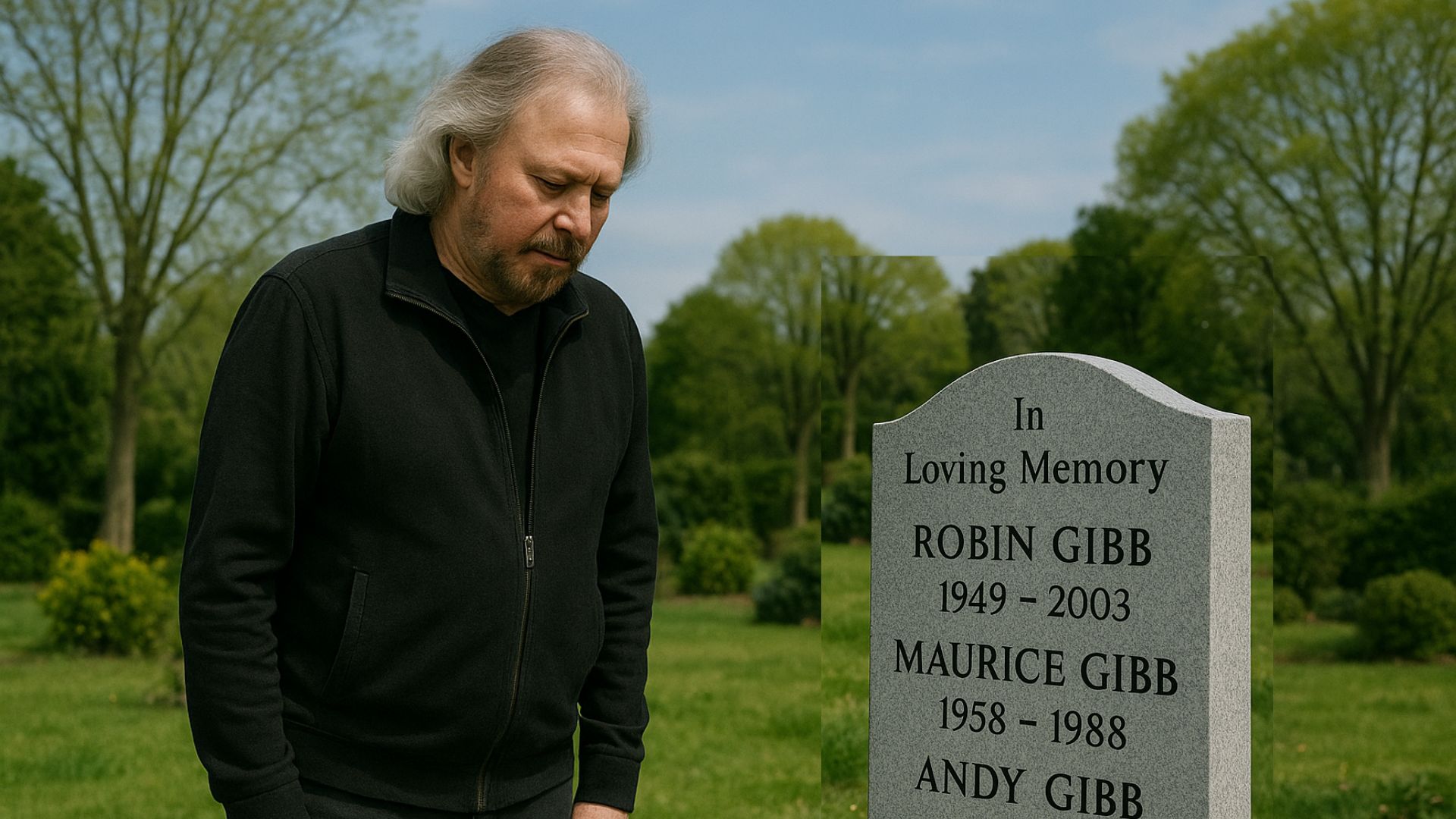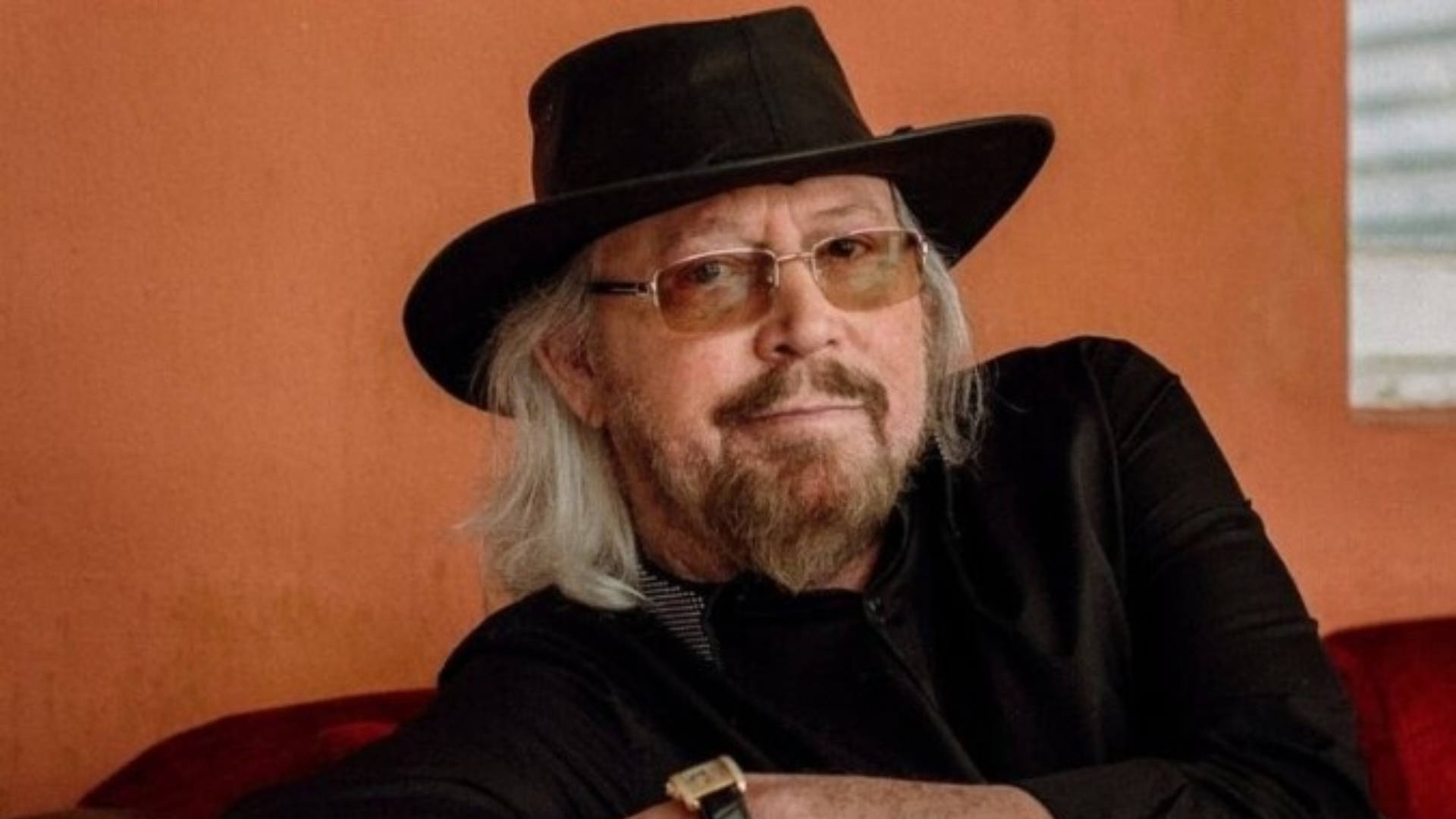
When the Bee Gees released “Alone” in 1997, they were no longer chasing the world — they were reflecting on it. Thirty years had passed since their first hit, and the brothers — Barry, Robin, and Maurice Gibb — had endured more than most bands ever could: fame, backlash, personal loss, and rebirth. Out of that long road came a song that wasn’t just about solitude — it was about endurance. “Alone” became both a love song and a confession, sung by men who had seen everything and still had music left to give.

The track opens with a haunting pulse — the quiet hum of strings and a heartbeat rhythm that feels almost cinematic. Then Barry’s voice enters, lower and more human than the falsetto that once ruled the airwaves. “I was a midnight rider on a cloud of smoke…” The line feels like a journey’s beginning and ending all at once — a reflection on motion, escape, and the loneliness that follows even the brightest lights. The melody aches, but it’s steady; the voice carries both regret and resilience.
Lyrically, “Alone” captures what it means to keep believing in connection when everything else falls away. “And I don’t wanna be alone,” Barry pleads in the chorus — a simple statement, but sung with the full weight of a lifetime. It isn’t the loneliness of youth; it’s the solitude of someone who’s lived through loss and still dares to love. That’s the song’s quiet miracle: its honesty. The Bee Gees were no longer writing to climb charts — they were writing to understand themselves.
The harmonies — always the brothers’ sacred language — return here not as decoration but as communion. Robin’s voice trembles in the high harmonies, Maurice steadies the foundation, and Barry leads with that unmistakable ache. Together, they sound like memory itself — three souls intertwined, aware that their bond is their lifeline. It’s not just music; it’s blood, shared and eternal.
Musically, “Alone” blends the lush, emotional textures of the Bee Gees’ classic sound with the sophistication of the 1990s. The arrangement is sleek but warm — a balance of electronic and organic, human and machine — mirroring the tension between isolation and hope that the song embodies. By the time the bridge arrives, the emotion swells into something almost spiritual. You can feel the weight of years in every chord, but you can also feel the light breaking through.
When Barry sings “And I don’t wanna be alone…” for the final time, it’s not just a refrain — it’s a prayer. A prayer for connection, for the people we lose and the love we keep, for the way music can fill the silence when words fall short.
In hindsight, “Alone” holds an even deeper meaning. It would be one of the last Bee Gees singles released before Maurice’s passing in 2003, and listening now, it feels like a message left behind — a declaration that even in loneliness, the love between them never faded.
Because that’s what the Bee Gees always understood: that harmony is more than sound. It’s the thread that keeps us tethered — to memory, to family, to life itself.
And so “Alone” endures, not as a song of despair, but of survival — a reminder that even when we stand in the quiet, surrounded by loss, love still echoes through the dark.